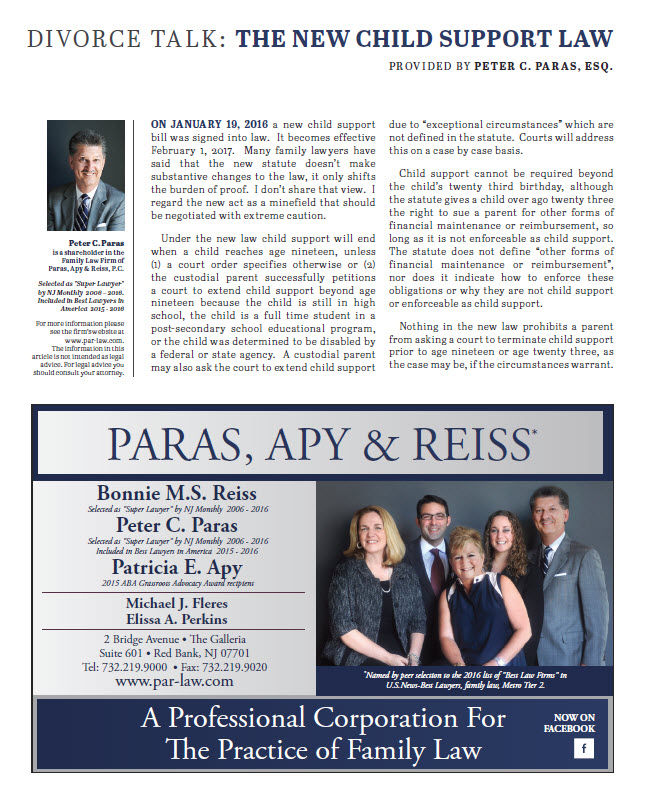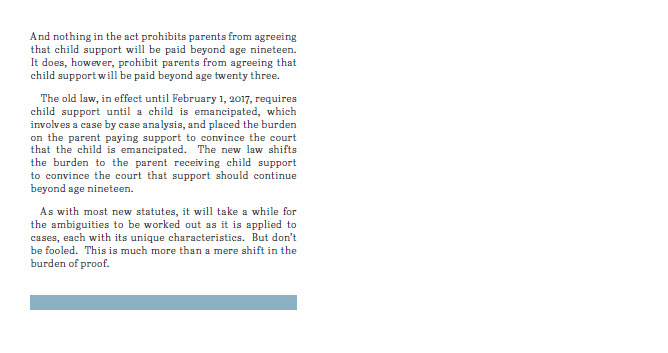ON JANUARY 19, 2016 a new child support bill was signed into law. It becomes effective February 1, 2017. Many family lawyers have said that the new statute doesn’t make substantive changes to the law, it only shifts the burden of proof. I don’t share that view. Iregard the new act as a minefield that should be negotiated with extreme caution.
Under the new law child support will end when a child reaches age nineteen, unless (1) a court order specifies otherwise or (2) the custodial parent successfully petitions a court to extend child support beyond age nineteen because the child is still in high school, the child is a full time student in a post-secondary school educational program, or the child was determined to be disabled by a federal or state agency. A custodial parent may also ask the court to extend child support due to “exceptional circumstances” which are not defined in the statute. Courts will address this on a case by case basis.
Child support cannot be required beyond the child’s twenty third birthday, although the statute gives a child over ago twenty three the right to sue a parent for other forms of financial maintenance or reimbursement, so long as it is not enforceable as child support. The statute does not define “other forms of financial maintenance or reimbursement”, nor does it indicate how to enforce these obligations or why they are not child support or enforceable as child support.
Nothing in the new law prohibits a parent from asking a court to terminate child support prior to age nineteen or age twenty three, as the case may be, if the circumstances warrant.
And nothing in the act prohibits parents from agreeing that child support will be paid beyond age nineteen. It does, however, prohibit parents from agreeing that child support will be paid beyond age twenty three.
The old law, in effect until February 1, 2017, requires child support until a child is emancipated, which involves a case by case analysis, and placed the burden on the parent paying support to convince the court that the child is emancipated. The new law shifts the burden to the parent receiving child support to convince the court that support should continue beyond age nineteen.
As with most new statutes, it will take a while for the ambiguities to be worked out as it is applied to cases, each with its unique characteristics. But don’t be fooled. This is much more than a mere shift in the burden of proof.


